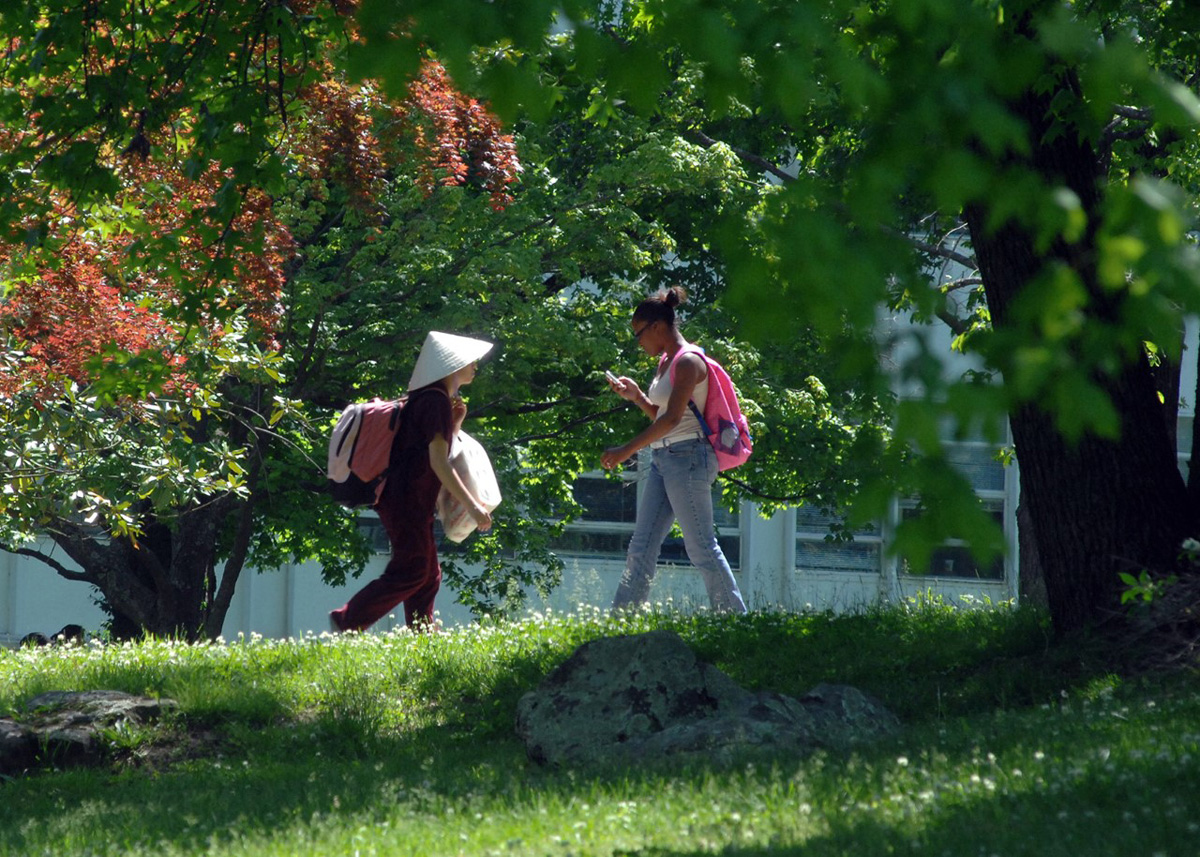
October 28, 2019
SIU earns repeat national accolades for sustainability initiatives
CARBONDALE, Ill. — Southern Illinois University received not one, but two national honors this fall for its commitment to sustainability and environmental responsibility.
SIU has earned a spot in The Princeton Review’s “Guide to Green Colleges: 2019 Edition.” It’s the seventh consecutive year and the eighth time in the 10-year history of the award that SIU has been honored.
In addition, SIU has claimed a spot on the Sierra Club’s “Cool Schools” list for the fourth year in a row.
Awards illustrate action
These two important awards show SIU and the university community are actively pursuing ways to make the campus and surrounding area a greener, more environmentally friendly place, according to campus officials.
“Sustainability is about answering a call to action. It is about looking at our everyday decisions – those with long-term and short-term implications, and making a decision to do something differently or to do something new,” Geory Kurtzhals, sustainability director, said. “The Princeton Review and Sierra Club magazine recognitions are a nod to the members of our SIU community – students, faculty, staff and community members – who have answered this call to action. They often give of their time and talent with no request for reward or recognition and the Office of Sustainability is truly grateful for their dedication.”
Princeton Review profiles SIU
Princeton Review grades universities on a variety of criteria and requires a score of 80 or higher on a scale from 60 to 99 in order to earn recognition. SIU was among 413 schools around the globe honored for strong commitments to green policies, practices and programs.
Information for the rankings was gleaned from:
- Institutional data.
- Surveys of administrators.
- Student surveys.
The administration surveys focus on questions about the healthy and sustainable quality of life students experience, how well the school is preparing students for employment in a green economy and the environmental responsibility of a school’s policies. Students were asked how sustainability issues influence their education and life on campus, how supportive administrators are of environmental awareness and conservation efforts and regarding the visibility and impact of student environmental groups.
Students especially raved about the pretty wooded campus and nearby access to “amazing” forest preserves and national parks. SIU’s high fire safety ranking of 95 and financial aid ranking of 91 were noted as well.
The publication does not rank schools within its list. SIU’s profile is also featured in the publication, including photographs, details about the university, its students, academics, campus life and various “green” facts about the university.
Cool School
SIU is also one of 282 universities chosen as Sierra Club’s “2019 Cool Schools.” SIU is one of just five Illinois institutions to earn a spot in the top 170 positions. The university was ranked particularly high for research and for curriculum, coming in a No. 41 and No. 66, respectively, in those categories.
In determining the rankings, the organization collaborated with the Association for the Advancement of Sustainability in Higher Education (AASHE) to gather data. To earn a spot an institution had to have a valid Sustainability Tracking, Assessment and Rating System (STARS) rank at the bronze, silver, gold or platinum level and have earned that ranking within the previous three years. SIU has earned the silver STARS rank and scored not far from the gold level. An additional survey was also part of the process.
Many reasons for awards
SIU’s notable commitment to sustainability is evident in many ways. Since 2009, more than $2.2 million in Green Fund grant has been awarded to 193 diverse campus projects. The Green Fund was established through a student-led initiative and fed by a nominal student fee. A five-member Green Fund Committee, which includes three student members of the Sustainability Council, evaluates all grant applications and makes recommendations to the nine-member Sustainability Council, which awards the grant monies.
So far projects have focused on energy efficiency, renewable energy, green space/grounds, transportation, waste, food and sustainability outreach. Special events, undergraduate and graduate student research and long-term campus facilities investments to assure a more sustainable future have all received funding.
One of the recently funded projects enabled students to remove more than 75 percent of the invasive autumn olive and honeysuckle plants around the pond near the Tree Improvement Center and replace it with native pollinating plants. Another was the installation of an electronic signature pad in the College of Engineering advisement office, thereby reducing annual paper usage by 4,000-6,000 sheets. An online showcase featuring some of the projects has been created as well.
SIU also has a Sustainability Office, which coordinates the various efforts across campus, and a Saluki Green Action Team which works to raise awareness and encourage people to take simple actions to make a difference in the carbon footprint they and the campus have. In addition, there are several registered student organizations with a sustainability focus and some academic courses with a sustainability component.
Looking forward
Kurtzhals said SIU doesn’t want to rest on past laurels, but rather will continue to push to help make campus and the surrounding area a greener and more sustainable community.
“We encourage each member of the SIU community to reflect on his or her circle of impact and consider their opportunities to help create a more sustainable campus,” Kurtzhals said.
For more information about SIU Sustainability, visit the website at sustainability.siu.edu, email sustainability@siu.edu or call 618/453-2846.
